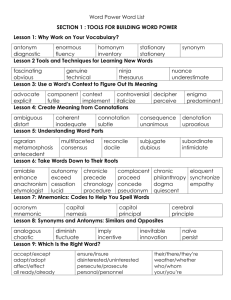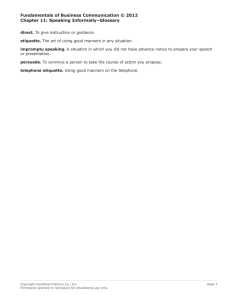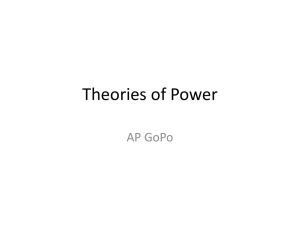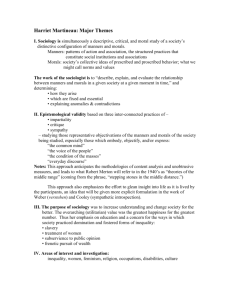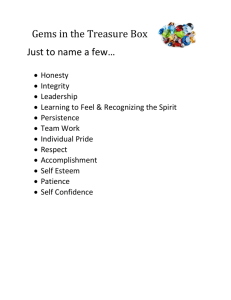Chapter 3 Functional and Conflict Theories of Education
advertisement
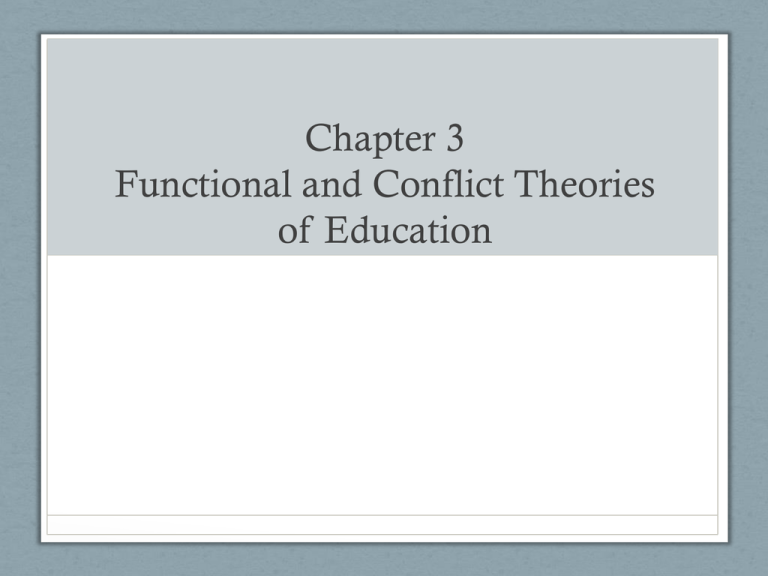
Chapter 3 Functional and Conflict Theories of Education Functionalist Theory Process of stratification: Occupational structure demands for specific performance training/education fills demands Needs of society determine behavior rewards individuals Critique • Acquisition of new skills occur w/in job categories • Ed level changed in excess • More/better education not necessarily more productive Critique: Professionalization of Occupations • Ed quality little effect on productivity • Set ed requirement (licensing laws) tactic to raise prestige/autonomy • Reality learning retained only in small part • Ed goals achieved with a minimum of learning Social Mobility** Education Occupational Success Social Origins major intervening variable Independent of educational credentials Social Mobility Variables • Race/ethnicity • Class • Skin color • Name • Accent • Style of dress • Manners • Conversational ability Business (tech industry) Elite • Upper and middle class • White • Male • Straight • Prestigious universities **Ascribed group prime basis for selection Education** Mark of membership in a particular group not skills or achievement Conflict Theory • Status groups** associated groups sharing common cultures/sub-cultures: share a sense of status equality based on participation in common culture ** a fundamental senses of identity: others can not participate comfortably Status Group Characteristics • Style of language • Taste of clothing/decor • Manners • Conversational topics • Opinions • Values • Preferences in sports, media, arts **Exclusion Normatively legitimated exclusion based on: • Class lifestyle • Power position • Cultural conditions; geography, ethnicity, religion, education Struggle for Advantage • Elite select new members from their status group i.e. “fits in” • Lower level employees who are indoctrinated to respect superiority • Struggle; wealth, power, prestige **Education as a Status Culture Main activity is to teach status culture: vocabulary, inflection, dress, aesthetic tastes, values and manners (i.e. create and process “products” that reflect the culture of the institution) Education:** Mechanism of Occupational Placement Screening device: Elite socialized to the dominant culture Employees attitude of respect **Schools produce distinctive personality types Empirical Support • Distinctions among status groups; class and ethnicity • Status groups occupy different occupational positions i.e. Wall Street Ivy League w/distinctive personality type upper class values/manners
